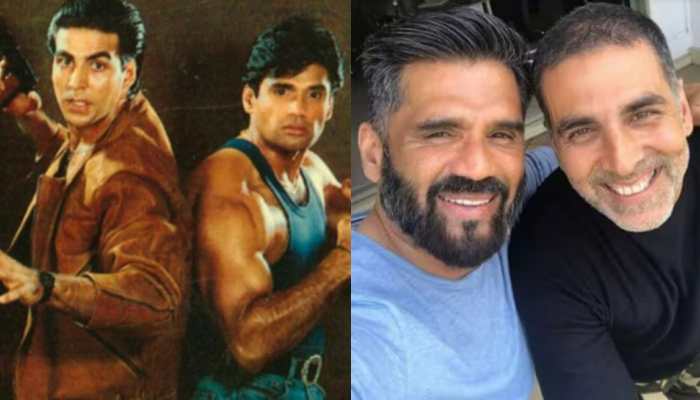GRC will become the hub for all gender activities in Bihar: Dr N Vijaya Lakshmi
Trending Photos
)
The Bihar government has taken up the issue of violence against women, particularly domestic violence seriously at all levels, right from conducting sensitisation workshops and initiating gender equity movement in schools to setting up the Gender Resource Centre. Dr N Vijaya Lakshmi, Managing Director, Women Development Corporation, talks to OneWorld South Asia's Ashok Kumar about the role of the SWASTH programme on the issue of violence against women and implementation of state policy for women's empowerment amongst other issues. Excerpts from the interview:
OneWorld South Asia: The Women Development Corporation (WDC) is working with the Bihar Technical Assistant Team (BTAST) on the Sector Wide Approach to Strengthening Health (SWASTH) programme. What is the nature of this engagement?
Dr N Vijaya Lakshmi:The Government of Bihar launched the SWASTH programme in 2010. It is expected to be completed in March 2016. The basic objective is to help the government to create an enabling environment for implementation of initiatives on Health, Nutrition and Water & Sanitation. The programme has both—Financial Assistance (FA) and Technical Assistance (TA) components. WDC works very closely with BTAST on the SWASTH programme on various issues, including four key components—Gram Varta, which uses the self-help group platform; Violence Against Women (VAW); Gender Resource Centre (GRC); and the institutional strengthening of WDC itself.
OWSA: What kind of initiatives have been taken on the issue of VAW?
Dr Vijaya Lakshmi: On the issue of VAW, there are three sub components. The first component is about creating an enabling environment, the second component is about strengthening of institutions; and the third component is about innovation and research and scaling up of these initiatives.
Creation of an enabling environment includes developing operational plans to address domestic violence issues on the WHO prevention model. We have also supported effective implementation of women specific legislations with a special focus on the Protection of Women from Domestic Violence Act, 2005 (PWDVA). Another sub-component supports the State Policy on Empowerment of Women, for which a detailed action plan has been prepared. The government of Bihar has formulated the Women Empowerment Policy in 2015. BTAST has supported in formulating and drafting the policy. Now an action plan is being made to operationalise the policy.
We have also established very good partnerships with the State Legal Services Authority (SLSA) and District Legal Services Authorities (DLSAs). SLSA acts as a nodal agency for providing legal aid and other services for women in distress. Similarly, DLSAs provide similar services at the district level. WDC with the support of BTAST works very closely with the SLSA and DLSAs to bring justice to the doorsteps of women. So, this is a very important component for strengthening the existing helplines and short stay homes. Another innovative approach, which we have implemented recently, is creating a special cell for women in partnership with the state Home Department and police. As a pilot, we have implemented this in 23 police stations in the Patna district and there is also a proposal in the pipeline to implement the concept of these special cells in all the 112 sub-divisional police stations. This was announced by the Hon’ble Chief Minister on March 8th this year - the International Women’s day.
We are also running an exciting gender equity movement in schools. Under this programme, gender education modules are used for sensitising Class 6 and Class 7th students. We have already covered 200 schools and are going to cover few more hundred schools. Similarly, for sensitising community members, we are creating awareness through various Information, Education and Communication (IEC) campaigns, including Nukkad Nataks (street plays).
Besides, we are conducting a lot of sensitisation workshops for various stakeholders including the police, judiciary, administration officials, Panchayati Raj representatives, para legal cadres, etc. A series of workshops and sensitisation programmes have been conducted on issues related to VAW. I can say this with a lot of confidence that this is unprecedented since we have never done this in Bihar. There has not been so much of focus on VAW earlier in Bihar. With the support of BTAST, we could do all this in a span of 2-3 years.
OWSA: What prompted the idea of setting up the Gender Resource Centre (GRC)?
Dr Vijaya Lakshmi: We wanted to set up the GRC to have a nodal agency at the state level, which would collect data related to women on socio-economic issues. For example, if a researcher on banking sector wants to know how many women are working in the sector, we don’t have the data. So, we wanted to have an agency, which can actually collect this kind of data, analyse it and come up with certain indicators to make it easy for policy makers to take further decisions. This is one big gap which we have identified and we thought that we should have a nodal agency to fill this gap.
Apart from this, the GRC also has an advocacy role for women and other stakeholders from the government and civil society. The Parliament has enacted so many legislations related to dowry prohibition,child marriage prohibition, prevention of sexual harassment at workplace, women’s protection from domestic violence, etc. There are so many laws but people are not aware of these laws. The GRC can create awareness about these laws and also train and build capacities of various stakeholders.So, we are actually visualising the GRC as the hub for all gender activities at the state level.
OWSA: Gender is already interwoven in the SWASTH programme across many interventions. Do you see GRC adding value to the programme?
Dr Vijaya Lakshmi: Yes, once we have data, we can analyse it. All the SWASTH programme subcomponents are very much in sync with what we are thinking about how to take it forward in the future. The VAW component is especially very important. Likewise Gram Varta is a very important component.
OWSA: What is your experience of involving communities in initiatives like Gram Varta?
Dr Vijaya Lakshmi: The beauty of these programmes is that you involve the community members themselves as trainers. We have master trainers and we also have supervisors and facilitators and coordinators who are actually selected from the community itself. So, it’s like your own friends talking to you instead of somebody from outside lecturing you. When your own community member talk about the issues, you relate with that person and the beauty of these programmes is that we have really developed a lot of community workers and built their capacities. So, once you give them knowledge, it is going to be there with them and they will influence wherever they are as community coordinators and facilitators. So, that is very good.
OWSA: For a policymaker like you, what are the key learnings from the SWASTH programme and how has the BTAST support added value to the work of WDC?
Dr Vijaya Lakshmi: Both TA and FA have added a lot of value to the work of WDC. TA was very much instrumental in getting a lot of expertise on various issues. For example, we could really focus on VAW. As I mentioned earlier, nobody used to even talk about VAW. Our sensitisation programmes conducted during the last couple of years for a number of stakeholders have been phenomenal. Even Gram Varta, which is an integral component of the SWASTH programme, has added a lot of value to the common man’s life. Now if you go to any village where Gram Varta is implemented, you can immediately perceive the knowledge dissemination amongst the community. You can talk to any woman and she will tell you about malnutrition, what is anaemia, how to control anaemia, how to take care of pregnant and lactating mothers, what is the importance of breast feeding for the first six months, etc. They not only have the knowledge now, but are really taking lessons from that knowledge and actually implementing it in their own lives. So, there is a lot of improvement in their health, and the health expenditure has gone down.
OWSA: How do you think the work done so far can be made sustainable?
Dr Vijaya Lakshmi: Now the government has to take ownership and the government has already taken ownership on a lot of initiatives. In any case, the government plays a larger role. Only the government can scale up such interventions. I am sure the government will take these initiatives further.
Live Tv







)
)
)
)
)
)
)
)
)
)
